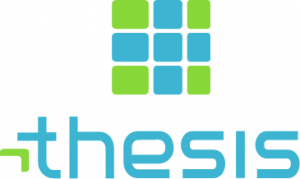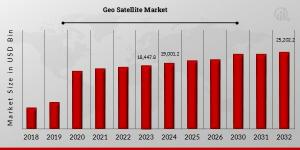Good afternoon. It’s good to be with you. Thank you, Rose, for your introduction and for all of the work that the Freedom Online Coalition is doing.
It is fitting to be here at the Atlantic Council for this event, because your mission sums up our purpose perfectly: “shaping the global future together.”
That is our fundamental charge in the field of technology and democracy—how we use modern innovations to forge a better future.
That’s what the DFR Lab strives to achieve through your research and advocacy. That’s what the Freedom Online Coalition, its members, observers, and Advisory Network seek to accomplish through our work. Thank you for your partnership.
More than five decades ago—seems like a long time ago, but really, very short—the internet found its origins in the form of the first online message ever sent—all of two letters in length, delivered from a professor at UCLA to colleagues at Stanford.
It was part of a project conceived in university labs and facilitated by government. It was an effort meant to test the outer limits of rapidly evolving technologies and tap into the transformative power of swiftly growing computer networks.
What these pioneers intended, at the time, was actually to devise a system that could allow people to communicate in the event of a nuclear attack or another catastrophic event.
Yet what they created changed everything. How we live and work. How we participate in our economy and our politics. How we organize movements. How we consume media, read books, order groceries, pay bills, run businesses, conduct research, learn, write, and do nearly anything we can think of.
Change didn’t happen overnight, of course, and that change came with both promise and peril.
This was a remarkable feat of scientific discovery, and it upended life as we know it, for better and sometimes worse. Over the years, as we went from search engines to social media, we started to face complicated questions, as leaders, as parents and grandparents, as members of the global community.
Questions about how the internet can best be utilized; how it should be governed; who might misuse it; how it impacts our children’s mental and emotional health; who could access it and how we can ensure that access is equitable, benefitting people in big cities, rural areas, and everywhere in between.
Big picture questions arose about these tectonic shifts—what they would mean for our values and our systems of government. Whether it’s the internet as we understand it today or artificial intelligence revolutionizing our world tomorrow, will digital tools create more democracy or less? Will they be deployed to maximize human rights or limit them? Will they be used to enlarge the circle of freedom or constrain and contract it?
For the United States, the Freedom Online Coalition, and likeminded partners, the answers should point in a clear direction: at a basic level, the internet should be open and secure for everyone. It should be a force for free enterprise and free expression.
It should be a vast forum that increases connectivity; that expands people’s ability to exercise their rights; that facilitates unfettered access to knowledge and unprecedented opportunities for billions.
Meeting that standard, however, is not simple. Change that happens this fast in society and reaches this far into our lives rarely yields a straightforward response, especially when there are those who seek to manipulate technology for nefarious ends.
The fact is, where all of us may strive to ensure technology delivers for our citizens, autocratic regimes are finding another means of repression.
Where democracies seek to tap into the power of the internet to lift individuals up to their highest potential, authoritarian governments seek to deploy these technologies to divide and disenfranchise; to censor and suppress; to limit freedoms, foment fear, and violate human dignity.
They view the internet not as a network of empowerment, but as an avenue of control. From Cuba and Venezuela to Iran, Russia, the PRC, and beyond, they see new ways to crush dissent through internet shutdowns, virtual blackouts, restricted networks, blocked websites, and more.
Here in the United States, alongside many of you, we have acted to sustain connections to internet-based services and the free flow of information across the globe, so no one is cut off from each other or the outside world, or cut off from the truth.
Yet even with these steps, none of us are perfect.
Every day—almost everywhere we look—democracies grapple with how to harness data for positive ends while preserving privacy; how to bring out the best in modern innovations without amplifying their worst possibilities; how to protect the most vulnerable online while defending the liberties we hold dear.
It isn’t an easy task—and in many respects, as I’ve said, it’s only getting harder.
The growth of surveillance capabilities is forcing us to constantly reevaluate how to strike the balance between using technologies for public safety and preserving personal liberties.
The advent of AI is arriving with a level of speed and sophistication we haven’t witnessed before. It will not be five decades before we know the impact of AI. That impact is happening now.
Who creates it, who controls it, who manipulates it will help define the next phase of the intersection between technology and democracy. By the time we realize AI’s massive reach and potential, the internet’s influence might really pale in comparison.
The digital sphere is evolving at a pace we can’t fully fathom and in ways at least I can’t completely imagine. Frankly, we have to accept the fact that the FOC’s absolutely vital work can feel like a continuous game of catchup. We have to acknowledge that the guidelines we adopt today might seem outdated as soon as tomorrow.
Now, let me be perfectly clear: I am not saying we should throw our hands in the air and give up. To the contrary: I’m suggesting that this is a massive challenge we have to confront and a generational charge we have to embrace.
We have to set standards that meet this moment—and that lay the foundation for whatever comes next. We have to address what we see in front of us—and equip ourselves with the building blocks to tackle what we cannot predict.
To put a spin on a famous phrase: with the great power of these digital tools comes great responsibility to use that power for good.
That duty falls on all our shoulders, and the stakes could not be higher for internet freedom, for our common prosperity, for global progress.
Because expanded connectivity—getting the two billion unconnected people online—can drive economic growth; raise standards of living; create jobs; and fuel innovative solutions for everything from combating climate change to reducing food insecurity to improving public health to promoting good governance and sustainable development.
So we need to double-down on what we stand for: an affirmative, cohesive, values-driven, rights-respecting vision for democracy in the digital era.
We need to reinforce rules of the road for cyberspace that mirror and match the ideals of the rules-based international order.
We need to be ready to adapt our legal and policy approaches for emerging technologies.
We need the FOC, alongside partners in civil society, industry, and elsewhere, to remain an essential vehicle for keeping the digital sphere open, secure, interoperable, and reliable.
The United States believes in this cause as a central plank of our democracy and of our diplomacy.
That’s why Secretary Blinken established our Department’s Bureau of Cyberspace and Digital Policy—and made digital freedom one of its core priorities.
That’s why the Biden-Harris Administration spearheaded and signed onto the principles in the Declaration for the Future of the Internet, alongside 61 countries ready to advance a positive vision for digital technologies.
That’s why we released core principles for tech platform accountability last fall, and why the President called on Congress to take bipartisan action in January.
That’s why we are committed to using our turn as FOC Chair as a platform to advance a series of key goals.
First, we will deepen efforts to protect fundamental freedoms, including human rights defenders online and offline—many of whom speak out at grave risk to their own lives and to their families’ safety. We will do so by countering disruptions to internet access, combating internet shutdowns, and ensuring everyone’s ability to keep using technology to advance the reach of freedom.
Second, we will focus on building resilience against the rise of digital authoritarianism, the proliferation of commercial spyware, and the misuse of technology, which we know has disproportionate and chilling impacts on journalists, activists, women, and LGBTQI+ individuals.
To that end, just a few hours ago, President Biden issued an Executive Order that, for the first time, will prohibit our government’s use of commercial spyware that poses a risk to our national security—or that’s been misused by foreign actors to enable human rights abuses overseas.
On top of that step, as part of this week’s Summit for Democracy, the members of the FOC and other partners will lay out a set of Guiding Principles on Government Use of Surveillance Technologies.
These principles describe responsible practices for the use of surveillance tech. They reflect democratic values and the rule of law; adhere to international obligations; strive to address the disparate effect on certain communities; and minimize the data collected.
Our third objective as FOC Chair focuses on artificial intelligence. and the way emerging technologies respect human rights.
As some try to apply AI to help automate censorship of content and suppression of free expression, FOC members must build a consensus around policies to limit these abuses.
Finally, we will strengthen our efforts on digital inclusion. On closing the gender gap online. On expanding digital literacy and skill building. On promoting access to safe online spaces and robust civic participation for all, particularly women and girls, LGBTQI+ persons, those with disabilities, and more.
Here’s the bottom line: the FOC’s work is essential, and its impact will boil down to what we do, as a coalition, to advance a simple but powerful idea—preserving and promoting the value of openness.
The internet, the web, the online universe is at its best when it is open for creativity and collaboration. Open for innovation and ideas. Open for communication and community, debate and discourse, disagreement and diplomacy.
The same is true for democracy—a system of governance, a social contract, and a societal structure that is strongest when defined by open spaces to vote, deliberate, gather, demonstrate, organize, and advocate.
This openness could not be more important. Because when the digital world is transparent. when democracy is done right—that’s when everyone has a stake in our collective success.
That’s what makes everyone strive for a society that is free and fair, in our politics and in cyberspace.
That’s what will give everyone reason to keep tapping into the positive potential of technology to forge a future of endless possibility and boundless prosperity for all.
Let’s keep shaping that future, together.
So, good luck with all your remaining work. There’s lots ahead. And thank you so much for all that you do.
Official news published at https://www.state.gov/transcript-remarks-for-deputy-secretary-wendy-sherman/












